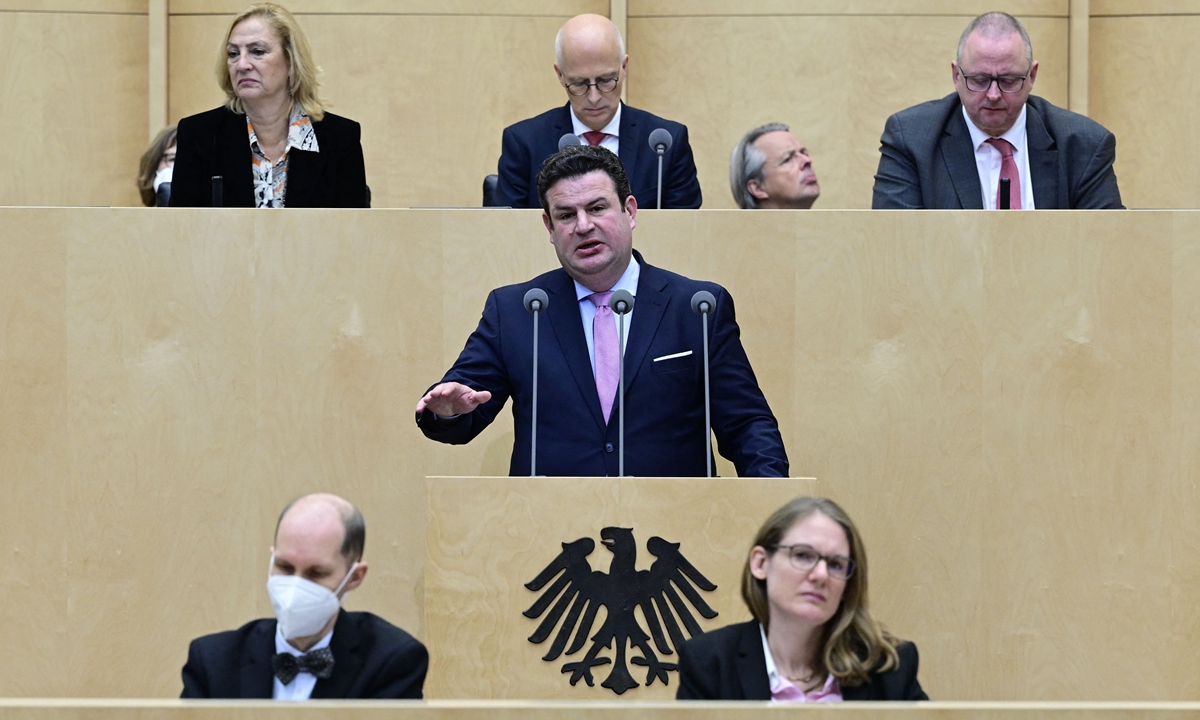
German Minister of Labor and Social Affairs Hubertus Heil (center) gives a speech during an extraordinary session at the German Federal Council on November 14, 2022 in Berlin. The session was focusing on immediate aid for the month of December and the so-called Buergergeld, a minimum allowance provided by the state for unemployed people, as Germany faces a cost-of-living crisis. Photo: AFP
Germany's government on Monday defended a plan to make it easier for people to apply for citizenship, countering complaints from within the ruling coalition and the opposition that it might encourage illegal immigration.The government has said it wants to boost immigration and training to tackle a skills shortage weighing on Europe's largest economy at a time of weakening growth, and when an aging population is piling pressure on the public pension system.
A position paper obtained by Reuters - and earlier reported on by the German news site t-online - shows the government wants to do that in part by significantly reducing the income threshold for migration and introducing a points system.
"Anyone who lives and works here on a permanent basis should also be able to vote and be elected, they should be part of our country with all the rights and duties that go with it," Chancellor Olaf Scholz said at a televised immigration forum.
"And this should be completely independent of origin, skin color or religious affiliation," he added.
Interior Minister Nancy Faeser, from Scholz's Social Democrats (SPD), has outlined plans to cut the maximum number of years a person must wait before becoming a citizen from eight to five, and lift restrictions on dual nationality.
German language requirements for citizenship would also be eased for members of the so-called "Gastarbeiter" generation, many of them Turkish, who came to Germany in the 1950s and 1960s as migrant workers.
Scholz further said that Germany, echoing a policy in other countries, would introduce a "transparent, unbureaucratic" immigration points system to allow foreigners who have the right qualifications to apply for work.
Scholz defended allowing immigrants to hold dual citizenship, arguing that "belonging and identity are not a zero-sum game."
The draft legislation is expected to be discussed by cabinet on Wednesday, Scholz said, after which it must be put to lawmakers in the Bundestag, the lower house of parliament.
Reuters



